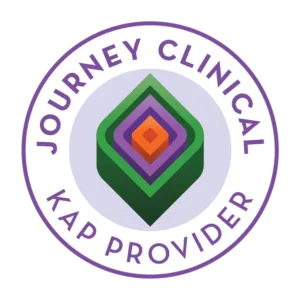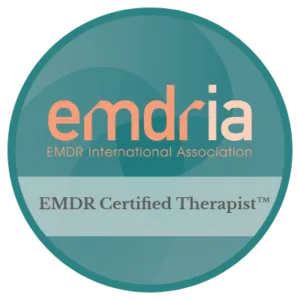Rebuild Your Life with Addiction Therapy in Denver




Signs That You Should Seek Addiction Therapy
- Using substances to cope, despite harmful consequences
- Neglecting responsibilities and relationships due to substance use
- Inability to quit or cut back, often due to intense cravings
- Continuing use despite worsening health issues
- Increasing substance use to achieve the same effect
- Prioritizing substance use over other activities
- Experiencing withdrawal symptoms, often relieved by using more
- Feeling persistent shame or guilt about substance use
Our experts are here to help you understand and heal.
What to Expect at Your First Addiction Therapy Session
Stepping into therapy can feel daunting, but we’re here to make it comfortable.
At your first session, you’ll find a judgment-free space to share your story at your own pace. We’ll discuss how substance use has impacted your life and what you hope to achieve through therapy.
Together, we’ll set goals and develop a personalized plan that addresses your unique challenges. Our aim is to provide support and expert tools to help you regain control.
Remember, you’ve already taken the courageous first step–we’re here to guide you on your path to recovery.


What Types of Addiction Can Our Therapy Help With?
At Denver Men’s Therapy, we understand that addiction takes many forms. Beyond the well-known struggles with substances, we also recognize less obvious dependencies, like technology addiction.
Did you know that over 35% of people experience internet addiction, with 31% of American adults reporting being online “almost constantly”?
- Alcohol Use Disorder
- Drug Addiction
- Prescription Drug Misuse
- Technology Addiction
- Other Behavioral Addictions
- Porn addiction
- Sex addiction
Our evidence-based, judgment-free approach is tailored to your unique needs, addressing both substance and behavioral addictions.
Meet Our Experienced Addiction Therapists in Denver
Feeling lost in your struggle with addiction? Our skilled addiction recovery therapists are here to light the way. With expertise in various addiction treatments, we offer personalized support for your unique recovery journey.

MS, LPC
I help men learn to let go of problematic attachments – addictions, challenging mental health symptoms and relationships – develop insight, and improve communication to improve their quality of life..

MSW, Licensed Addiction Counselor | EMDR-Certified
I assist men that have past and present emotional scars and addiction to achieve emotional growth, intimacy, social engagement and improved self-esteem.

LCSW, Licensed Addiction Counselor | EMDR trained | IFS
I specialize in supporting young and adult males transitioning from treatment centers, empowering them to build a strong foundation for recovery and envision the fulfilling life they desire after leaving substance use behind.
Why You Should Seek Therapy for Addiction Recovery
Addiction can feel like a relentless storm, battering you with waves of shame, isolation, and helplessness. The cycle might seem unbreakable, but you mustn’t weather this alone. Here’s how therapy can be your anchor:
- Break the Cycle of Shame: Step into a space where you can confront addiction without judgment, building self-compassion along the way.
- Uncover Root Causes: Explore the underlying pain fueling your addiction, transforming overwhelming emotions into opportunities for growth.
- Regain Control: Discover practical strategies to manage cravings and triggers, gradually reclaiming your life from addiction’s grip.
- Rebuild Connections: Learn to heal strained relationships and rebuild trust, strengthening your support network.
- Prevent Relapse: Develop a personalized plan to maintain your recovery, facing challenges with newfound confidence.
- Rediscover Yourself: Journey beyond quitting to rediscover joy and purpose, uncovering passions you thought were lost.
Remember, seeking help isn’t a weakness—it’s an act of courage. Every step in therapy moves you closer to the life you deserve.


Therapeutic Approaches for Addiction Recovery at Denver Men's Therapy
At Denver Men’s Therapy, we recognize that your journey to recovery is as unique as you are. Our licensed therapists offer a range of evidence-based approaches to meet your specific needs.
From Eye Movement Desensitization and Reprocessing (EMDR) to help process trauma to group therapy that connects you with peers who understand your struggles, we’re here to support you every step of the way.
We believe in treating the whole person, not just the addiction. That’s why we incorporate holistic approaches that address the mind-body connection in recovery.
In our judgment-free space, you’re free to explore your relationship with substances and work towards the life you envision.
Remember, recovery isn’t a solo journey. Let’s work together to build your path to lasting change and rediscover the life you deserve.
Your Questions About Addiction Therapy, Answered
1. How can I convince my loved one to seek help for addiction?
Approaching this delicate situation with empathy is key. Express your concerns lovingly, avoid judgment, and offer support. Share information about treatment options, but remember, the decision ultimately rests with them. We’re here to guide you both when they’re ready.
2. How long will I need to see an addiction therapist?
Recovery is a personal journey, and treatment duration varies for each individual. We’ll work together to create a plan tailored to your needs, adjusting as you progress. The goal is lasting recovery, not a quick fix.
3. Do you offer medical detox, rehab center, or inpatient treatment center services?
No. We do not offer medical detox, rehab center, or inpatient treatment center services. We are considered a private practice.
4. Can I receive counseling and treatment for multiple addictions at once?
Absolutely. At Denver Men’s Therapy, our drug and alcohol counselors understand addictions often overlap. Our approach addresses multiple addictions and co-occurring mental health issues simultaneously, ensuring a holistic recovery.
Our addiction therapy in Denver is designed to support all aspects of your healing journey.
5. What is the difference between substance use counseling and addiction therapy?
While both address substance use, addiction therapy typically involves more in-depth, long-term treatment. We focus on underlying issues, develop comprehensive coping strategies, and work towards sustainable, long-term recovery and overall well-being.
You've Fought Alone Long Enough - Let's Tackle This Together








